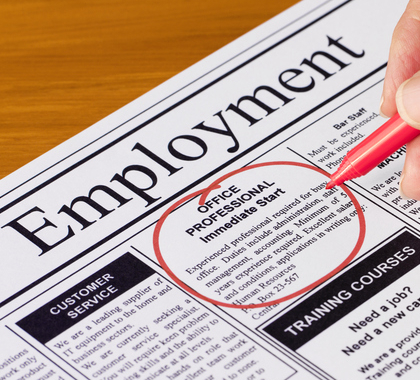The California State Senate is considering a bill passed by the State Assembly that would allow striking workers to collect unemployment benefits even though they have jobs at which they are not working.
A.B. 1066, sponsored by Lorena Gonzalez (D-San Diego), would allow workers to claim unemployment benefits after four weeks on the picket lines. It would also allow workers to receive unemployment benefits during lockouts, when employees are ordered to stay home by an employer. The State Assembly passed the bill on May 22.
The striking workers could receive anywhere from $40 to $450 a week from the state Unemployment Insurance Trust Fund, which is paid for by a payroll tax. As in many states, the California trust fund ran out of money in 2009 due to increased claims during the recession.
Times: No Thanks
Gonzalez says the bill would provide workers “with a basic safety net to ensure they are not starved back to work by their employer, that they have the means to stand up for fair treatment on the job and can have a basic level of income to provide for their families during a labor dispute,” the Los Angeles Times stated in a July 10 editorial.
The editorial opposed the bill, stating “No, we shouldn’t dip into California’s unemployment funds to help striking workers.”
New York and New Jersey allow striking workers to collect unemployment benefits after a waiting period.
Extending Time Out of Work
Providing unemployment benefits generally prolongs the period of time people are out of work, says Stan Greer, a senior research associate for the National Institute for Labor Relations Research and a policy advisor to The Heartland Institute, which publishes Budget & Tax News.
“I think the consensus among economists is that if you fund more unemployment benefits, more people will claim them,” Greer said.
“Many economists who commonly regard government interventions in the economy as benign are part of this consensus,” Greer said. “Obama economic advisor Larry Summers wrote, ‘Unemployment insurance … extends the time a person stays off the job.'”
Paying for Disputes
Benefits are meant for the involuntarily unemployed, not individuals involved in labor disputes, says Greer.
“The California legislation represents a remarkable expansion of unemployment benefits,” Greer said.
“Instead of assisting people who can’t get any job, or at least can’t get one roughly commensurate with their skills and experience, Bill 1066 would provide unemployment benefits for people who have a disagreement—or whose union has a disagreement—with the employer about their terms and conditions,” Greer said.
Siding with Labor Unions
The bill would put the state in the position of automatically taking unions’ side in labor disputes, says Craig Eyermann, a research fellow at the Independent Institute.
“The bill would likely lead to strikes lasting longer than they otherwise might, putting the affected employers at a distinct disadvantage, whether or not that might be in the interest of a majority of the state’s population,” Eyermann said.
Gonzalez’s bill would also extend unemployment benefits to striking government workers, many of whom are barred from striking, says Eyermann.
“If the bill extends those benefits to members of state public employee unions, it would be highly unfair to state residents,” Eyermann said.
Bailing Out Union Bosses
Given that labor unions typically have strike funds from which they striking pay workers a stipend, these laws serve as a financial bailout for union bosses, who traditionally have had to rely on member-funded strike funds to keep workers on the picket line in prolonged strikes, says Patrick Semmens, vice president for communications at the National Right to Work Legal Defense Foundation. Unions frequently tap into that money for other purposes, says Semmens.
“For example, the UAW’s money-losing golf resort in Michigan is funded by their strike fund, including a million dollar lakeside house being built for former UAW President Dennis Williams, who is under investigation as part of a larger union corruption scandal that has resulted in many UAW officials going to jail,” Semmens said.
“If Big Labor can get taxpayers to fund striking workers through unemployment, then it frees up the money in those strike funds to be spent on union bosses’ radical political causes and limousine lifestyles,” Semmens said.
Owen Macaulay ([email protected]) writes from Hillsdale, Michigan.




